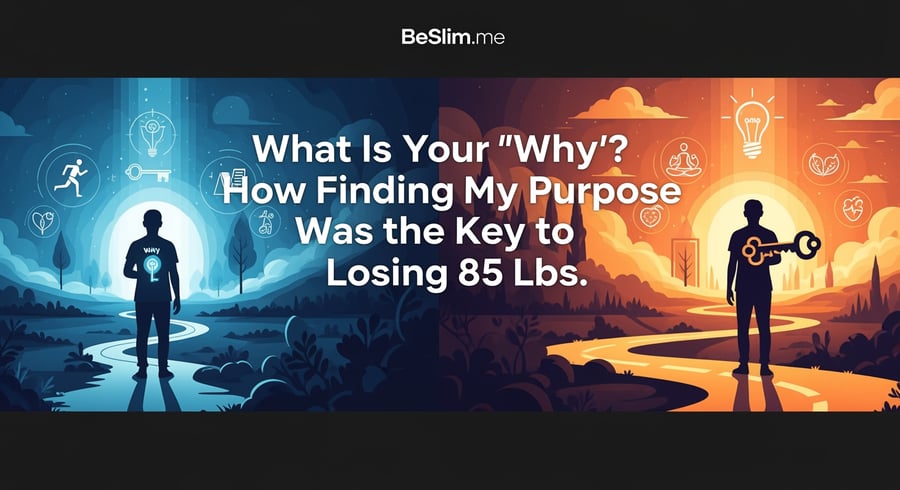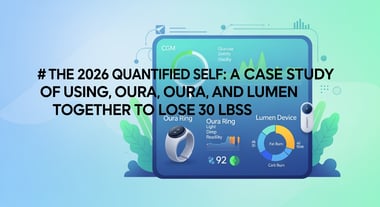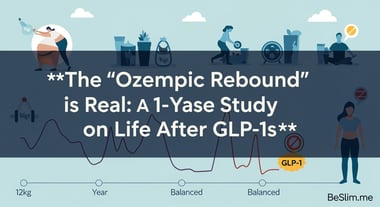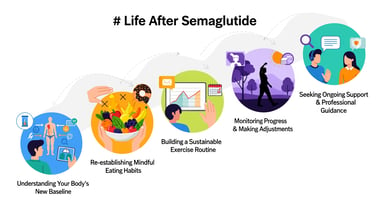Hello, I'm sharing my story not as some fitness guru, but as someone who's been right there in the trenches with you. If you've ever felt trapped in a cycle of diets that promise the world but deliver nothing but frustration, I get it. My journey wasn't about quick fixes or miracle pills—it was about digging deep to find my 'why,' that burning purpose that kept me going when everything else failed. Losing 85 pounds changed my life, but it started with understanding why I wanted to change in the first place. Let's walk through it together, step by step, so you can see how this shift might light a path for you too.
The Struggle
I remember the day it all hit me like a ton of bricks. I was 42, staring at myself in the mirror after yet another failed diet attempt. At 285 pounds, I felt like a stranger in my own body. My clothes didn't fit, my energy was nonexistent, and simple things like tying my shoes left me winded. But it wasn't just the physical weight—it was the emotional baggage that came with it. I'd wake up every morning promising myself "today's the day," only to crash by evening, reaching for comfort food to numb the disappointment.
My struggles began in my late 20s. Work stress from a demanding job in sales piled on, and I turned to food as my escape. Late-night pizzas, sugary sodas, and endless snacks became my coping mechanism. I tried everything: low-carb diets, juice cleanses, even those trendy apps that track every calorie. Each time, I'd lose 10 or 15 pounds, feel a spark of hope, and then... nothing. The weight would creep back, often with a few extra pounds as punishment for my "failure." It was a vicious cycle that left me feeling defeated and ashamed.
Emotionally, it was brutal. I'd avoid social gatherings because I didn't want people to see how much I'd let myself go. Family photos? I'd hide in the back or skip them altogether. My self-esteem plummeted, and I started isolating myself, convinced that no one could understand the constant battle in my head. Why couldn't I just stick to a plan? Was I weak? Lazy? These thoughts swirled like a storm, making every failed attempt feel like a personal indictment.
I recall one particularly low point: a family vacation where I couldn't keep up with my kids on a simple hike. They were bounding ahead, full of energy, while I lagged behind, sweating and out of breath. That night, as I lay in bed, the guilt washed over me. I wasn't just failing myself—I was missing out on being the dad I wanted to be. Diets came and went, but without a deeper reason, they all fizzled out. I was treating the symptoms, not the root cause. The pounds weren't the real enemy; it was the lack of purpose driving my efforts.
This phase lasted years, filled with yo-yo dieting and mounting frustration. I'd read success stories online and think, "If they can do it, why can't I?" But deep down, I knew something was missing. My motivations were superficial—wanting to look good for a reunion or fit into old jeans. They weren't strong enough to weather the storms of cravings, stress, and setbacks. It wasn't until I hit rock bottom that I realized I needed more than willpower; I needed a 'why' that resonated in my soul.
The Turning Point
The shift happened on a rainy Tuesday afternoon, about three years ago. I was at my doctor's office for a routine checkup, and the numbers on the scale glared back at me: 285 pounds. My blood pressure was through the roof, and the doc mentioned prediabetes as a looming threat. But it was his words that struck hardest: "This isn't just about weight; it's about your life. What's driving you to change?" That question lingered as I drove home, rain pattering on the windshield like a metronome to my racing thoughts.
I spent that evening journaling, something I'd never done before. I asked myself: Why do I really want this? Not the surface-level answers, but the deep ones. It hit me—I wanted to be there for my kids' milestones, to play soccer without gasping for air, to model healthy habits so they wouldn't face the same struggles. My 'why' wasn't about vanity; it was about legacy, love, and living fully. That purpose became my anchor.
With this newfound clarity, I approached weight loss differently. No more crash diets. Instead, I focused on sustainable changes rooted in science, understanding how my body and mind worked. For instance, I learned about leptin resistance, where the hormone that signals fullness gets out of whack from chronic overeating, making it harder to feel satisfied and easier to gain weight. Research on leptin resistance and obesity from PubMed explains how this can create a cycle of hunger and fat storage, which resonated with my endless cravings.
Stress was another big player. My high-pressure job kept my cortisol levels elevated, the stress hormone that promotes fat storage, especially around the belly. I started incorporating mindfulness practices, like short daily meditations, to manage it. Studies on cortisol management and weight loss from the Mayo Clinic highlight how reducing stress can lower cortisol and support better metabolic health, which helped me break free from emotional eating.
Habit formation became my secret weapon. I didn't overhaul everything overnight; I built small, consistent routines based on principles from behavioral science. Things like preparing meals ahead and walking 20 minutes daily stacked up over time. Insights into habit formation for long-term weight management from the NIH showed me that repetition and positive reinforcement create lasting change, turning my 'why' into daily actions.
Armed with this knowledge, I crafted a plan: balanced meals emphasizing whole foods, regular movement that I enjoyed (like hiking with my family), and weekly check-ins to reflect on my purpose. It wasn't perfect—there were slip-ups—but my 'why' pulled me back. Finding that purpose transformed weight loss from a chore into a meaningful pursuit.
The Success
Fast forward two years, and I've shed 85 pounds, hovering steadily at 200 pounds. But the real victory isn't the number on the scale; it's how my life has transformed. I chase my kids around the park without a second thought, my energy levels are through the roof, and I've even run a 5K—something I never dreamed possible. My blood pressure normalized, and those prediabetes warnings? A thing of the past.
Emotionally, it's like night and day. I look in the mirror and see someone strong, resilient, and proud. Socially, I'm more engaged—hosting barbecues, joining group hikes, and feeling confident in my skin. My relationships deepened too; sharing my journey with my wife brought us closer, and my kids now see me as a role model for perseverance.
The process taught me that weight loss is 80% mindset. By anchoring to my 'why,' I navigated plateaus and temptations with grace. I incorporated strength training twice a week, which built muscle and boosted my metabolism, and I tracked progress not just by weight, but by how clothes fit and how I felt. Setbacks happened—like holiday indulgences—but they didn't derail me because my purpose was bigger than any single mistake.
Today, I maintain my weight through mindful eating and activity, always circling back to why it matters. It's not about perfection; it's about progress fueled by purpose. If I can do this, so can you—start by asking yourself that crucial question: What's your 'why'?
Key Lessons for Your Journey
- Discover Your Deep 'Why': Surface motivations fade; dig into emotional reasons like family or health longevity to fuel lasting change.
- Build Habits Scientifically: Focus on small, repeatable actions informed by principles like habit formation to create sustainable routines without overwhelm.
- Manage Stress and Biology: Address factors like cortisol and leptin through mindfulness and balanced nutrition for better body responses and fewer setbacks.
References
- Research on leptin resistance and obesity - pubmed.ncbi.nlm.nih.gov
- Studies on cortisol management and weight loss - mayoclinic.org
- Insights into habit formation for long-term weight management - newsinhealth.nih.gov
Medical Disclaimer
The content on this website is for informational and educational purposes only. It is not intended as medical advice and should not be relied upon as a substitute for consultations with qualified healthcare professionals who are familiar with your individual medical needs. Always seek the advice of your physician or other qualified healthcare provider with any questions you may have regarding a medical condition. Never disregard professional medical advice or delay in seeking it because of something you have read on this website.




